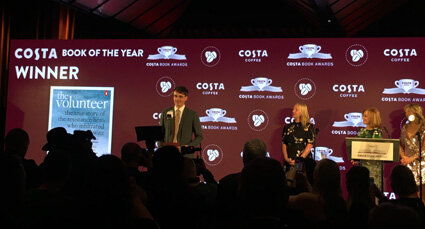I’ve greatly enjoyed following the Costa Book Awards this year. The shortlist announcement at the end of November included recent favourite reads such as the poetry collection “Surge” and the novel “Starling Days”. It’s one of my resolutions this year to read more outside of my comfort zone of novels and with the multiple categories this prize includes it’s a great opportunity to explore other genres. So when the category winners were announced at the beginning of January I decided to read the poetry, biography and children’s books as well as the first novel award winner. I’m so glad I took the time to read them because I think “The Confessions of Frannie Langton” is such an inventive and mesmerising story. I also found the poetry “Flèche” collection to be so absorbing and moving. The only book I didn’t finish was the YA novel “Asha & the Spirit Bird” because I found the plot somewhat clunky (probably because I’m not the right audience for this form of book) though I enjoyed the characters and setting. However, I was completely gripped by the biography “The Volunteer” which recounts the story of a Polish resistance fighter who volunteered to be imprisoned in Auschwitz where he forged an underground army, sabotaged facilities, gathered evidence about Nazi war crimes and spread news of the Holocaust to the Allies.
I was lucky enough to have been invited to the Costa Book Awards ceremony last night. It was a glitzy affair with lots of lovely bookish people. And it was wonderful to see each of the category winners being awarded £5,000 on stage. Trying to judge books from these different categories against each other must be such a challenging task, but selecting an overall winner gives a good chance to celebrate literature across all genres. It was so difficult to guess but I had thought Sara Collins might win the award since a biography “The Cut Out Girl” won last year and several people I talked to felt the same way. However, “The Volunteer” was declared as the Book of the Year and author Jack Fairweather was awarded £30,000. I think this is a great decision. I know many people are hesitant to read more about WWII because it feels like it’s a portion of history which has been well covered. However, this powerful biography proves there are so many more unique and important stories to be told. Since I knew nothing of Witold Pilecki before reading this book it was also a very tense read because I had no idea what his fate would be so I was gripped till the end. It’s also poignant that this book won the prize this week because on Monday it was the 75th anniversary of the liberation of Auschwitz. I hope this award will encourage many other readers to pick up this tremendous biography.









